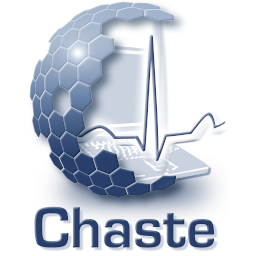PyChaste
The PyChaste project is a Python package which wraps a small amount of Chaste functionality. It provides common Chaste functionality to other projects with Python bindings, such as the Angiogenesis Project.
Installation
A conda Python package for Linux is currently under development. However, at the moment, the package needs to be built from source using the development version of Chaste and CMake.
First, Chaste dependencies need to be built from source following the Chaste Install Guide. In addition to the normal Chaste dependencies, this project also requires Boost Python and a Python shared library. These may already be on your system, in which case an attempt will be made to find them automatically. If not, Boost Python can be built by adding python to the list of libraries when following the Boost build instructions here.
The project only supports the development version of Chaste. This can be obtained by doing:
svn --username anonymous checkout https://chaste.cs.ox.ac.uk/svn/chaste/trunk/ Chasteusing subversion. The project code itself can be obtained by doing:
svn co "https://chaste.cs.ox.ac.uk/svn/chaste/projects/PyChaste"The PyChaste project code needs to be included in the projects folder of the main Chaste source. This can be done with a symbolic link:
cd $CHASTE_SOURCE_DIR/projects
ln -s $PYCHASTE_PROJECT_SOURCE_DIRor just by copying the project in. The project can then be configured in the typical way using CMake (see CMake build system guide for additional details). First, create a build directory outside the source tree and proceed as:
cd $BUILD_DIR
cmake $CHASTE_SOURCE_DIR
make project_PyChaste
make project_PyChaste_PythonThe Python package chaste will be in $BUILD_DIR under Chaste/projects/PyChaste/python. For convenience, the directory $BUILD_DIR/Chaste/projects/PyChaste/python should be added to your PYTHONPATH. A proper Python build script (i.e. setup.py) is still under development.
Usage
The package can be imported in Python as normal. For example, in a Python session do:
>>> import chaste.core
>>> file_handler = chaste.core.OutputFileHandler("Directory_For_My_Output_Files", False)
>>> print file_handler.GetOutputDirectoryFullPath()
/some/directories/Directory_For_My_Output_Files/Often it is neccessary to initialize MPI/PETSc when launching the C++ version of Chaste. This is the same for the Python version, with MPI initialization errors returned if you try to use functions which depend on it. To use MPI/PETSc functionality it is neccessary to install the petsc4py Python interface to PETSc. This can be done using pip:
pip install petsc4pyhowever care should be taken to ensure that the installed version of petsc4py matches your PETSc version. To initialize MPI/PETSc with Chaste you can do:
import chaste
chaste.init()User Projects
User projects, such as the Angiogenesis Project can have their own Python packages, which depend on PyChaste. They can be placed in the chaste/projects module of PyChaste and can be loaded as follows:
import chaste
chaste.init()
import chaste.projects.angiogenesisBinding Regeneration (Developers Only)
PyChaste is a mix of manual and automatically generated bindings. Binding logic is in WrapPython.cmake and dynamic\generate_X_bindings.py. To regenerate the automatic binding code do:
cd $BUILD_DIR
cmake $CHASTE_SOURCE_DIR
make project_PyChaste
make project_PyChaste_Python_Bindings